June Jordan Link to this section
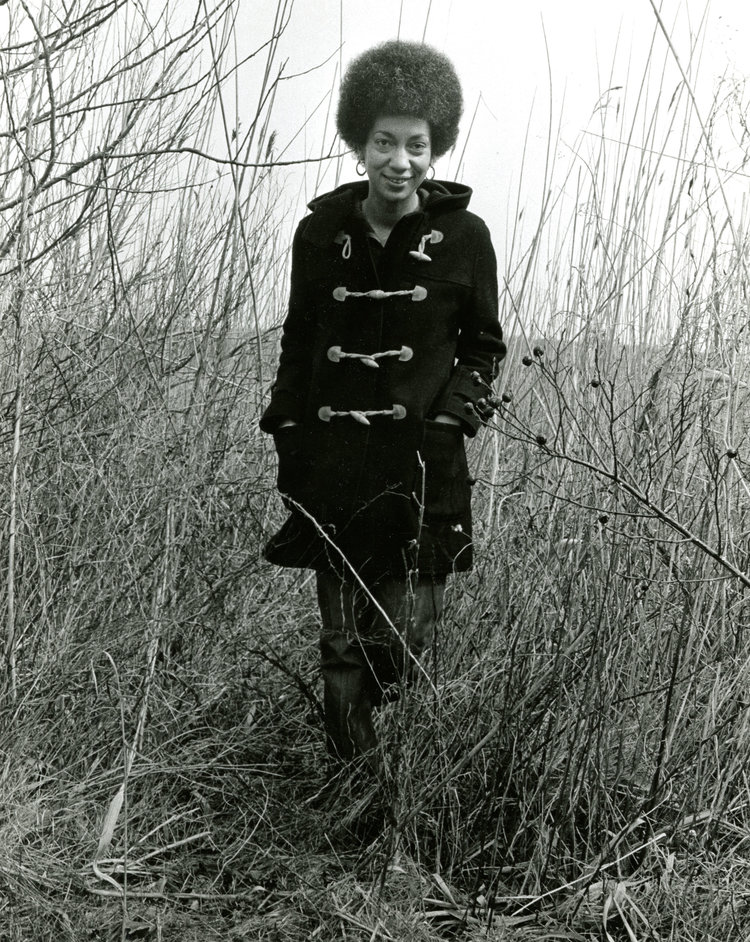
The June M. Jordan Literary Estate Trust describes June Jordan, who was born in Harlem in 1936, as follows: “Poet, activist, teacher, and essayist, she was a prolific, passionate and influential voice for liberation. June Jordan, who died in 2002, lived and wrote on the frontlines of American poetry, political vision and moral witness.”
Here are some additional comments from well-known American writers who knew June Jordan:
“Jordan makes us think of Akhmatova, of Neruda. She is among the bravest of us, the most outraged. She feels for all. She is the universal poet.” —Alice Walker
“In political journalism that cuts like razors, in essays that blast the darkness of confusion with relentless light; in poetry that looks as closely into lilac buds as into death’s mouth….she has comforted, explained, described, wrestled with, taught and made us laugh out loud before we wept…I am talking about a span of forty years of tireless activism coupled with and fueled by flawless art.” —Toni Morrison
Below is one of our favorite poems by June Jordan. You can read others and find more information at the website of the June M. Jordan Literary Estate Trust.
Poem for South African Women by June Jordan Link to this section
Our own shadows disappear as the feet of thousands
by the tens of thousands pound the fallow land
into new dust that
rising like a marvelous pollen will be
fertile
even as the first woman whispering
imagination to the trees around her made
for righteous fruit
from such deliberate defense of life
as no other still
will claim inferior to any other safety
in the worldThe whispers too they
intimate to the inmost ear of every spirit
now aroused they
carousing in ferocious affirmation
of all peaceable and loving amplitude
sound a certainly unbounded heat
from a baptismal smoke where yes
there will be fireAnd the babies cease alarm as mothers
raising arms
and heart high as the stars so far unseen
nevertheless hurl into the universe
a moving force
irreversible as light years
traveling to the open eyeAnd who will join this standing up
and the ones who stood without sweet company
will sing and sing
back into the mountains and
if necessary
even under the seawe are the ones we have been waiting for
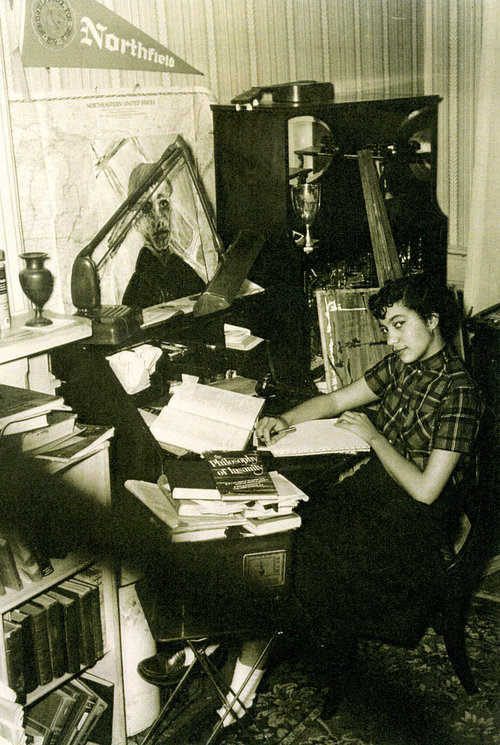
Who is June Jordan School for Equity? Link to this section
-
We are a college prep school, but we believe what kind of person you are comes before academics.
-
We are an innovative public school, but not a charter school.
-
100% of our graduates have a strong post-secondary plan.
-
We believe working-class families and students of color deserve a private-school-quality education, in a free public school.
-
We believe that true excellence cannot be achieved without equity, or fairness to all.
We are a safe small school that builds community by teaching values before academics.
-
Small class size of 25 or less and an advisory program with frequent parent collaboration
-
No tracking—all students take “A-G" CSU and UC university entrance requirements
-
A strong special education program where all students are integrated into the life of the school
-
A Wellness Center to address mental and physical health needs
A school for social justice where all students must be leaders
-
A cutting-edge Ethnic Studies curriculum, and a focus on inquiry and social justice in all subjects
-
Work-based learning opportunities for all students with community partners
-
Arts partnerships with local artists and community-based programs
-
A small farm and garden with chickens and fruit trees, and a field-to-table food and nutrition program
-
Hands-on science and environmental education
-
An innovative physical fitness and outdoor education program
-
An annual Youth Summit that brings youth from across the district to create solutions to issues in the community
A school that prepares independent thinkers for life in the 21st century
-
A state-of-the-art college and career preparation program for first generation students
-
Students take college-prep seminars and university courses for credit
-
Students graduate with a thoughtful post-graduate plan that outlines their college and/or career goals
-
Students graduate based on a Senior Thesis and Project addressing issues that affect our community
Our Mission
As a school for social justice serving predominantly working class communities of color, the mission of JJSE is not just to prepare students for college but also to prepare our graduates to be agents of positive change in the world. Our mission and vision is to prepare young people in three key areas:
Community
We live in respect, integrity, courage, and humility.
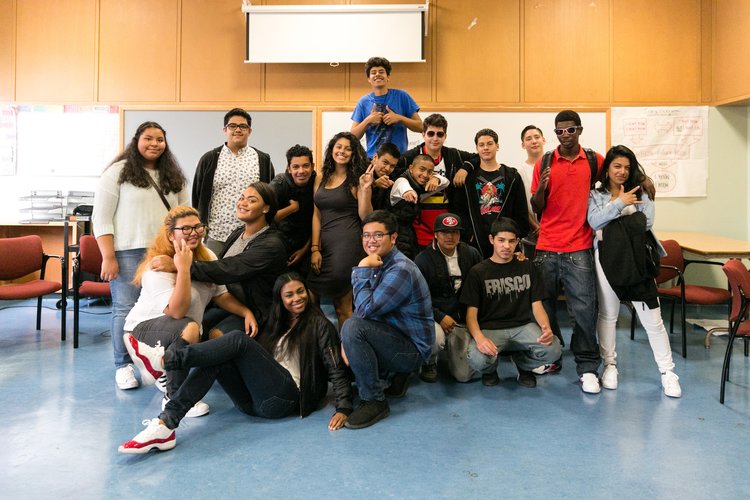
Social Justice
We stand against oppression, both internal and external, and see ourselves as part of the past, present, and future movements for justice in our communities and in our world.
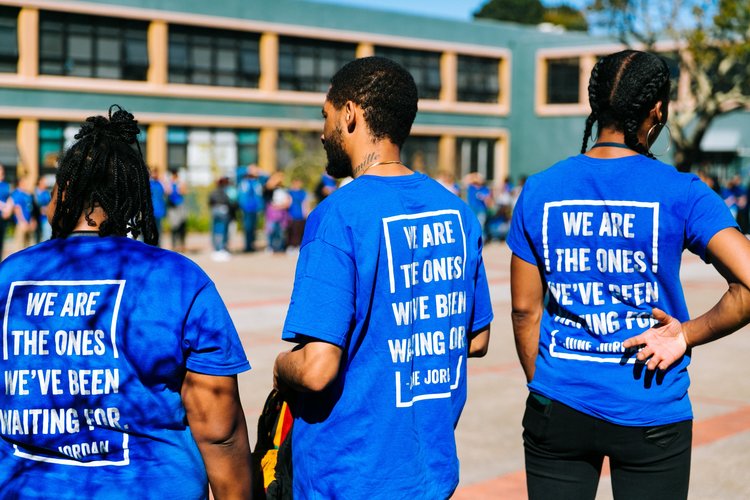
Independent Thinkers
We develop ourselves as intellectuals with the skills we need to succeed.
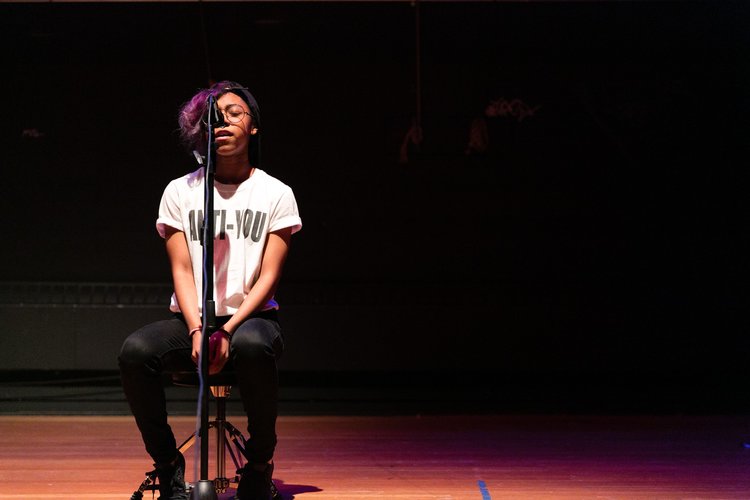
Our Values
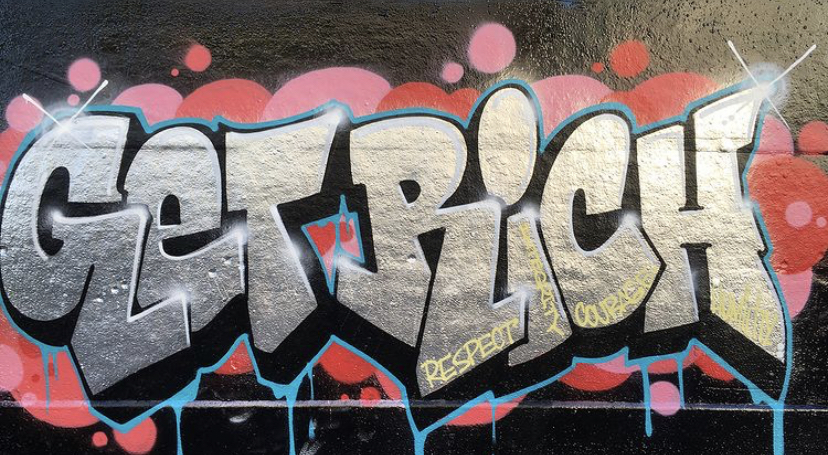
JJSE has four values which form the foundation of our work as a school. We believe these ethical principles are more important than academics, and that our graduation and college access rates mean nothing if our graduates do not live by these basic human values. At June Jordan we say, “Get RICH!"
RESPECT
• Always give respect FIRST!
• It must be in both how you speak and how you move, sit, or stand.
• Listen, listen, and listen before speaking.
• Think of how you would want to be treated.
• Your respect for others is a reflection of your strength.
INTEGRITY
• Do what you say and say what you do.
• Accept responsibility for your success and mistakes.
• Your work or no work.
• No need to lie.
• Have standards in your life.
• Respect deadlines.
COURAGE
• Face your fears.
• Face your peers.
• Take emotional risks in order to relate to others and change.
• Be vulnerable.
• Be prepared to stand alone.
• Accept the love and consequences that come with doing the right thing.
HUMILITY
• A necessary characteristic.
• No one knows everything.
• Indicates wisdom and confidence.
• One cannot learn without loss or failure.
• More concerned with resolution than victory.
Our Pedagogy
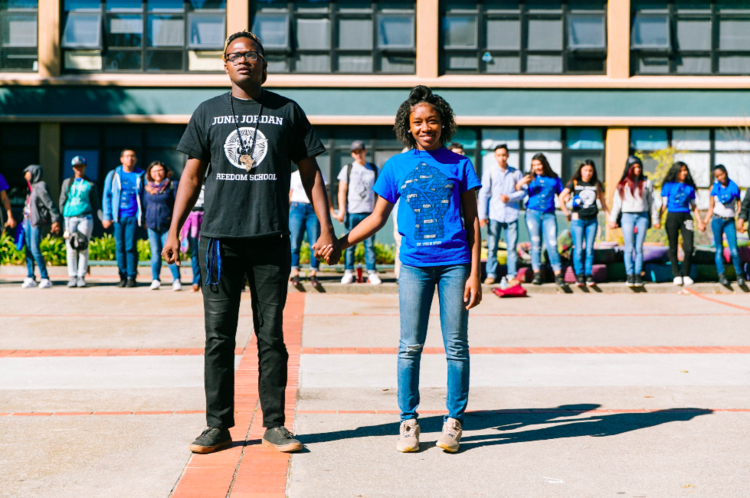
“No pedagogy which is truly liberating can remain distant from the oppressed by treating them as unfortunates….The oppressed must be their own example in the struggle for their redemption.” -Paulo Freire
As a school for social justice serving a largely working-class, Latino and African-American student population, the mission of June Jordan School for Equity is not just to prepare students for college, but also to prepare our graduates to be agents of positive change in the world.
Consequently, our pedagogy is expressly designed to help our students understand the forces of marginalization they have experienced growing up, and thus to begin the process of freeing themselves from oppression, including especially the internalized oppression (or self-imposed limits) which we see preventing so many students from meeting their potential.
We are in the process of clearly defining the JJSE pedagogy, in order to support JJSE teachers on their path to becoming masters at the art of teaching for social justice, which in turn will provide all JJSE students the opportunity to develop the self-confidence and self-discipline they need to become not just authentic intellectuals, but also leaders who will work on behalf of their communities and create a more just and humane world.
We believe that this represents real accountability, in contrast to the test-based accountability that is so popular in education today:
1) Warm Demander: Develop your students as human beings first.
-
Family & Culture: understand & honor the strengths of the community
-
Authenticity: model vulnerability and humility, be an ally, respect your students
-
Clear Boundaries: show strength, listen & affirm, challenge & offer a choice
-
Growth Mindset: believe in the “impossible,” embrace failure
2) Safe Classroom Community: Protect your students in a potentially dangerous world.
-
Prevention: clear expectations, talk about values, teacher voice, one mic
-
Rituals: Mindfulness, talking circle, strong start, strong finish
-
Jedi Awareness & control the mood
-
Intervention: assume positive intent, keep it in perspective, deliberate escalation, when to stop the curriculum and when/how to remove students
3) Knowledge of Students: Start where your students are, not where you want/imagine them to be.
-
Prior Knowledge: What do students know? What are their experiences? (Misconceptions?)
-
Student Voice: What do students care about? What do they think? (examples of activities like sort, chalk talk, dot voting, etc.)
-
Individual Needs: differentiation without tracking, adjusting instruction based on formative assessment
-
Choice: students should have real choices about how and what they learn (this does not mean we let students study whatever they want, but rather that students should be active in driving their own learning)
4) Students as Intellectuals: Develop your students as a community of warrior-scholars.
-
Inquiry: there is no “right answer,” questioning, evidence, students as sources of knowledge
-
Collective Accountability: classroom as intellectual community
-
Code Switching: academic language & discussion formats
-
Intellectual Challenge: high-level multicultural texts, complex problems, big ideas, less is more
5) Teacher as Coach: Let your students do the work.
-
Metacognition: students should know how they learn & how to self-assess
-
Academic Skills: binders, annotations, note-taking skills, etc.
-
Culture of Revision & Practice: models of excellent work, multiple revisions, guided practice
-
Team Work: heterogeneous groups, clear roles, focus on the process, address status
6) Social Justice Curriculum: Teach a curriculum that helps students understand the real world.
-
Clear Purpose: students know what they are doing and why it matters
-
Relevance: the curriculum helps explain the real world & oppression (social justice curriculum in math, science, humanities, arts, language, special education/life skills, multicultural curriculum, community connections, & cross-curricular connections)
-
Encourage Dissenting Opinions: critical thinking is the goal
-
Human Values: the curriculum is grounded in justice, fairness, dignity, & cultural strengths
This page was last updated on March 8, 2021

